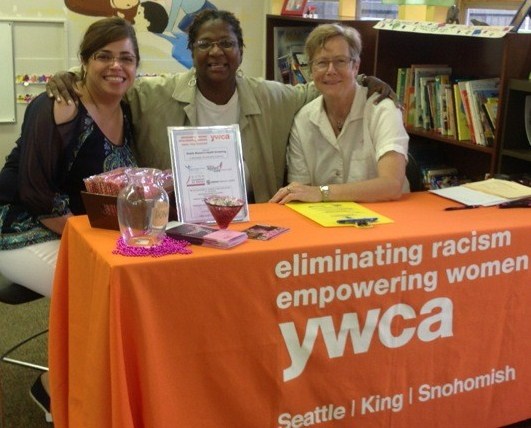In a recent Lifelong AIDS Alliance press release, a group of advocates wrote:
The CDC found that in 2010, youth ages 13-24 accounted for over a quarter of the new HIV infections in the US whereas in Seattle, only one in every eight people are diagnosed with HIV between the ages of 13-24 years old.
In fact, the CDC reports that approximately “60% of all youth with HIV do not know they are infected, are not getting treated, and can unknowingly pass the virus on to others.”
Last year, Ed Murray, mayor of the city of Seattle, proclaimed April to be Youth HIV & AIDS Awareness Month. In the proclamation, he encouraged “all within Seattle to educate themselves and others of the very real threat HIV/AIDS continues to pose to young people and to contribute their talents to our ongoing fight on behalf of everyone impacted by this disease.”
In truth, it’s the young people who are responding to this health issue that is still impacting youth and young adults. In Seattle, the youth HIV activists who urged for the city proclamation last year are continuing the awareness with hosting an educational community forum in celebration of National Youth HIV/AIDS Awareness Day (NYHAAD) held yearly on April 10th. The forum will be held on April 18th Saturday 1PM-3PM inside the Auditorium at the Downtown Central Library which includes an honest dialogue about HIV and AIDS stigma affecting youth communities in 2015 as well as prevention efforts.
This is a great chance to hear from 4 positive youth in Seattle area and PrEP Advocate Panelists. “This event is so important because it’s youth developed, youth led, and youth run,” Manuel Vengas, Seattle NYHAAD Youth Ambassador from Advocates for Youth, recently said.
Everyone can do something. Engage with your community and family at home. Most importantly, we need to have these discussions with our youth – otherwise we are neglecting them valuable information. Even though Seattle recognizes April as Youth HIV & AIDS Awareness Month, there’s still much to be done here and throughout the US as we strive to build an AIDS-free Generation. If folks can’t attend the community forum that’s understandable but there’s plenty of other ways to get educated and involved. There’s a list below of youth resources to get you started. Also consider joining Seattle area youth HIV activists, and regional community partners in a live twitter chat TODAY from 3-5PM. Join the Twitter chat by following @HEYOYouth and #PNWYouthHIV.
Let’s talk about this!
The forum is presented in partnership with the #MyHIVMoment campaign, a collaborative effort of Lifelong, BABES-Network YWCA, the Center for Multicultural Health, Entre Hermanos, Gay City Men’s Health, Seattle Counseling Services, and We Are 1.
~
Youth Resources
Youth can drop-in for free, confidential HIV testing at Lifelong weekdays from 8:30a.m. to 5:30p.m. For a full list of testing locations, click here.
The Seattle Young People’s Project is a youth-led, adult supported social justice organization that empowers youth (ages 13-18) to express themselves and to take action on the issues that affect their lives. For more information, click here.
Health Education Youth Outreach (HEYO) is Lifelong’s youth education program for youth age 16-24. Through peer-to-peer outreach and education, HEYO reduces stigma around queer issues, promotes healthy sexual choices and makes HIV testing and other resources readily available. For more information, click here.
The Inspire Youth Project (formerly Rise n’ Shine) provides emotional support programs, stability, advocacy and AIDS education for children and teens affected by HIV/AIDS. For more information, click here.
Safe Schools Coalition offers support for LGBTQ youth. For more information, click here.
BABES Network-YWCA offers peer support to women & heterosexual men living with HIV and their families as well as HIV education and resources. For more information, click here.
For information about PrEP and PEP, click here or see the information below.
Harborview Medical Center
M-F regular business hours: (206) 744-4377
M-F outside normal business hours: (206) 726-2619
Or visit the Harborview Emergency Room at 325 9th Ave., Seattle, WA.
For Needle Exchange locations, click here.
For drug and alcohol resources in Seattle & King County, click here.
-Written by Tranisha Arzah, BABES Network Peer Advocate








